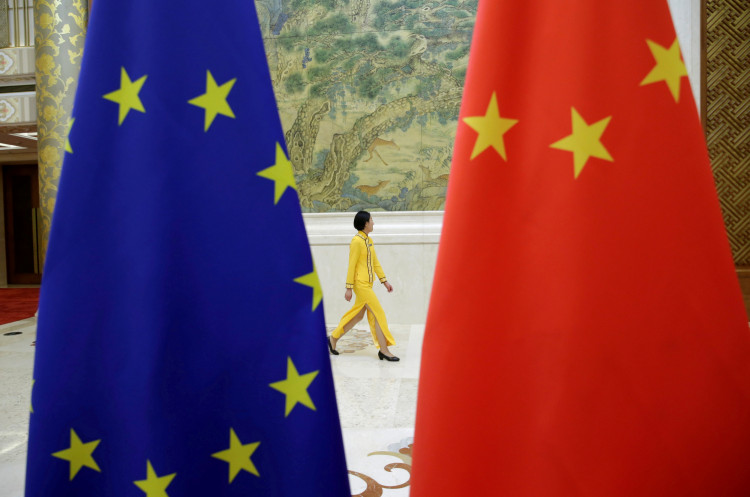The Comprehensive Agreement on Investment (CAI) between the EU and China is currently under "reassessment," given the changing global landscape and the myriad challenges both parties face. This was conveyed by the EU Ambassador to China, Jorge Toledo Albinana, on September 21 at a forum organized by the Center for China and Globalization (CCG). He mentioned that despite the uncertainties, there will be numerous high-level dialogues and visits between the EU and China in the coming days.
The CAI, which represents a highlight in EU-China cooperation, was announced on December 30, 2020, after seven years and 35 rounds of negotiations. However, just five months later, due to sanctions related to the Xinjiang issue, the European Parliament unilaterally froze the agreement. Adding to the complexities, on September 13, the EU announced the initiation of an anti-subsidy investigation into Chinese electric vehicles, a move opposed by both China and European automakers.
At the 9th China and Globalization Forum hosted by CCG on September 21, ambassadors from various European countries and Chinese representatives gathered to discuss the risks and prospects of EU-China cooperation during these turbulent times.
Addressing the anti-subsidy investigation, Ambassador Albinana stated that the investigation has not yet started and that the outcome remains unpredictable. He emphasized that countries and businesses have the right to appeal if they perceive any unfairness.
This year marks the 20th anniversary of the establishment of a comprehensive strategic partnership between the EU and China. In June, the European Council approved a "triple characterization" of China as a partner, competitor, and systemic rival.
Wu Hongbo, China's Special Representative for European Affairs, argued at the forum that China remains the EU's best partner in areas like economic development, financial stability, energy challenges, inflation control, competitiveness, and green and digital transitions. He expressed concerns over the EU's "triple characterization" of China, likening it to a traffic light showing all three colors simultaneously, causing confusion not just for China but also for European politicians, businesses, and the public.
Highlighting the difference between lawyers and engineers, Wu Hongbo humorously noted that while lawyers complicate simple issues to bill their clients, engineers simplify complex problems to solve them. He expressed hope that European ambassadors and EU coordinators would adopt the latter approach to foster further cooperation.
Several European ambassadors at the forum acknowledged that issues like the Russia-Ukraine conflict and differing views on human rights have unfortunately affected EU-China relations.
Despite these challenges, trade between the EU and China remains robust. According to Eurostat, in 2022, trade between the EU's 27 member states and China reached €856.3 billion, a 22.8% increase from the previous year. China is the EU's second-largest trading partner, its largest source of imports, and its third-largest export market.
Beyond the universally recognized area of climate change cooperation, new fields of collaboration are gaining attention. Wu Hongbo highlighted green economy, green transition, digitization, artificial intelligence, and high-end manufacturing as areas ripe for further cooperation. Patricia Flor, the German Ambassador to China, also emphasized the potential for collaboration in AI, data flow and security, and health and hygiene.
Thomas Ostrup Moller, the Danish Ambassador to China, introduced the concept of "Globalization 2.0." He stressed the benefits of globalization and open trade for both the EU and China but noted the rising costs and risks associated with the broadening concept of economic security. He emphasized the need for a balanced approach to globalization, preserving the benefits of the original version, such as innovation and productivity, while fostering continuous, honest, and open dialogue.
After three years of disruptions due to the COVID-19 pandemic, high-level exchanges between China and the EU are getting back on track. Since last year, leaders from the EU, Germany, Spain, and France have visited China, and Chinese Premier Li Keqiang has visited both Germany and France. Visits by foreign ministers and deputy foreign ministers are also on the rise.
On the afternoon of September 21, China's Ministry of Commerce announced that the 10th EU-China High-Level Economic and Trade Dialogue will be held in Beijing on September 25.





